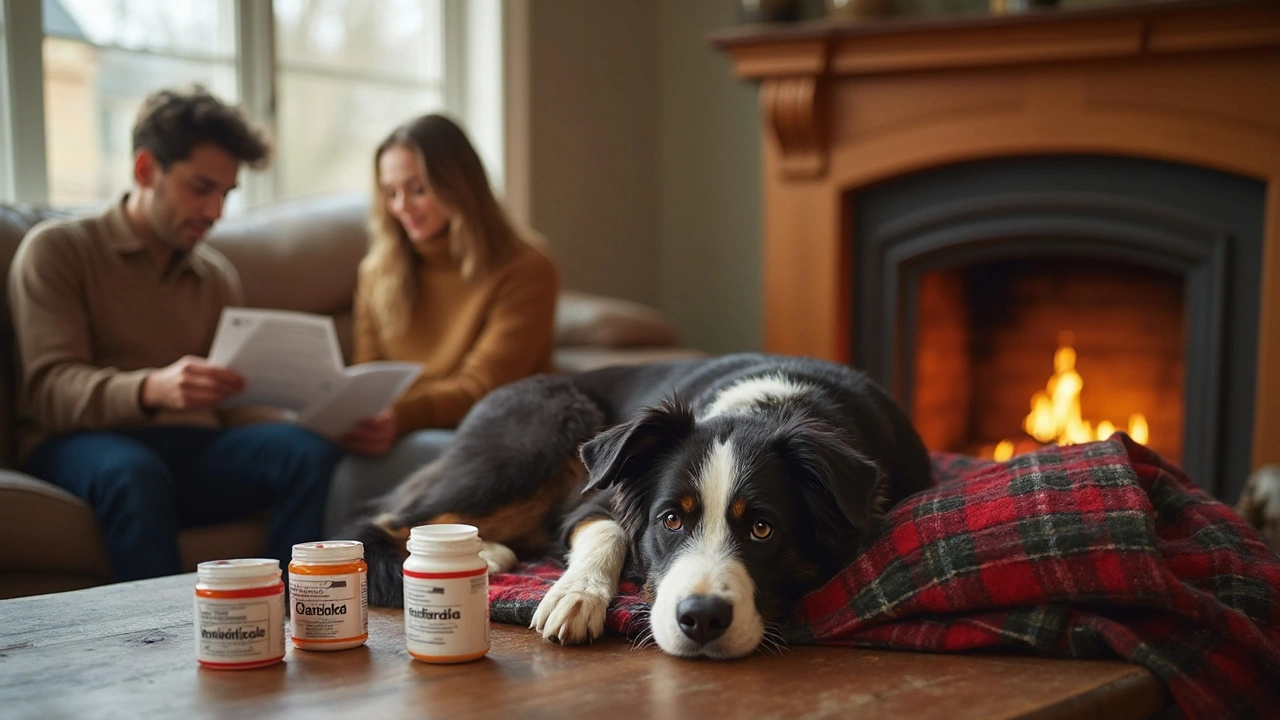Giardia in Dogs: Signs, Treatment, and Prevention
Giardia is a tiny parasite that lives in the gut and causes diarrhea. It’s common in puppies, shelter dogs, and any dog that drinks from puddles or shared water bowls. The good news: most dogs recover with simple treatment and careful cleaning. The trick is spotting it early and stopping the cycle of reinfection.
Symptoms & Diagnosis
Look for loose, foul-smelling stool that may be soft, greasy, or watery. Some dogs show sudden weight loss, bloating, or decreased appetite. Puppies often get sicker than adults. A dog can also be infected and show no signs but still pass Giardia to others.
Diagnosis usually comes from your vet doing a fecal test. There are two common ways: a fecal flotation under the microscope or a fecal antigen test (ELISA) that detects Giardia-specific proteins. Because Giardia cysts aren’t shed consistently, vets sometimes ask for multiple samples over a few days. If your dog has chronic diarrhea or doesn’t get better after treatment, your vet may repeat testing.
Treatment, Cleaning, and Prevention
Treatment often includes a short course of medication prescribed by your vet. Common drugs include fenbendazole or metronidazole, sometimes combined. Follow your vet’s instructions exactly and finish the full course. Some dogs need a repeat test after treatment to confirm the infection is gone.
Cleaning the environment is just as important as treating the dog. Giardia cysts survive in moist, cool places, so wash bedding, toys, and bowls in hot water and detergent. For non-washable items, a diluted bleach solution (follow product instructions) will kill cysts. Vacuum and mop floors, and dispose of stool in sealed bags. Sunlight and drying help, so outdoor items drying thoroughly reduces risk.
Water is a major source of infection. Don’t let dogs drink from puddles, stagnant ponds, or communal water bowls at parks. Bring fresh water on walks. If you hike in areas with uncertain water quality, use bottled water or boil/filter it before giving it to your dog.
To protect your household, isolate the infected dog during treatment when possible. Wear gloves when handling stool and wash your hands well afterward. Giardia can infect people, especially kids and people with weak immune systems, so extra care is wise. If someone in the home gets persistent diarrhea, see a doctor and mention potential exposure to Giardia.
Some dogs get reinfected, and a few remain carriers. Regular vet check-ups, clean living areas, and cautious water practices cut the risk. If you own a puppy, recently adopted dog, or visit areas where dogs congregate, keep a closer eye on stool and act fast if something looks off.
If your dog has sudden or severe diarrhea, blood in the stool, or signs of dehydration (dry gums, lethargy, reduced drinking), contact your vet right away. Giardia is common and treatable, and with the right care and cleaning, most dogs bounce back fast.

